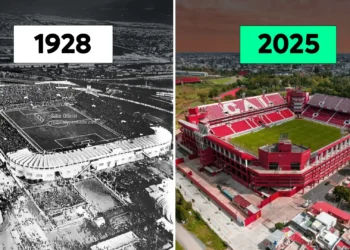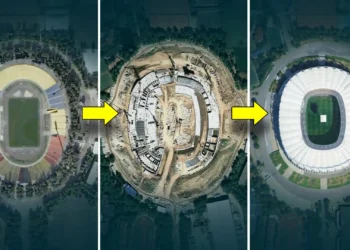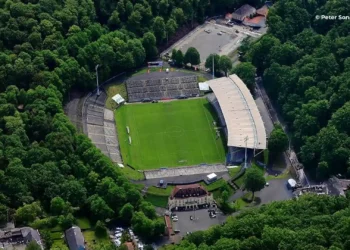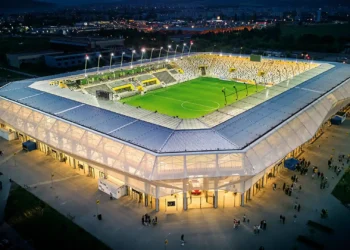What if the 2038 FIFA World Cup was jointly hosted by Greece and Turkey? Discover all the stadiums, host cities and tourist attractions from Athens to Istanbul in this historic tournament that connects continents.
A Historic World Cup That Would Connect Continents
For the first time, Greece and Türkiye would co-host the 2038 FIFA World Cup, bringing the world’s biggest football tournament to the shores of the Aegean Sea.
The event would mark a new chapter for global football – one that blends ancient history, modern architecture and Mediterranean culture in a unique celebration of unity and sport.
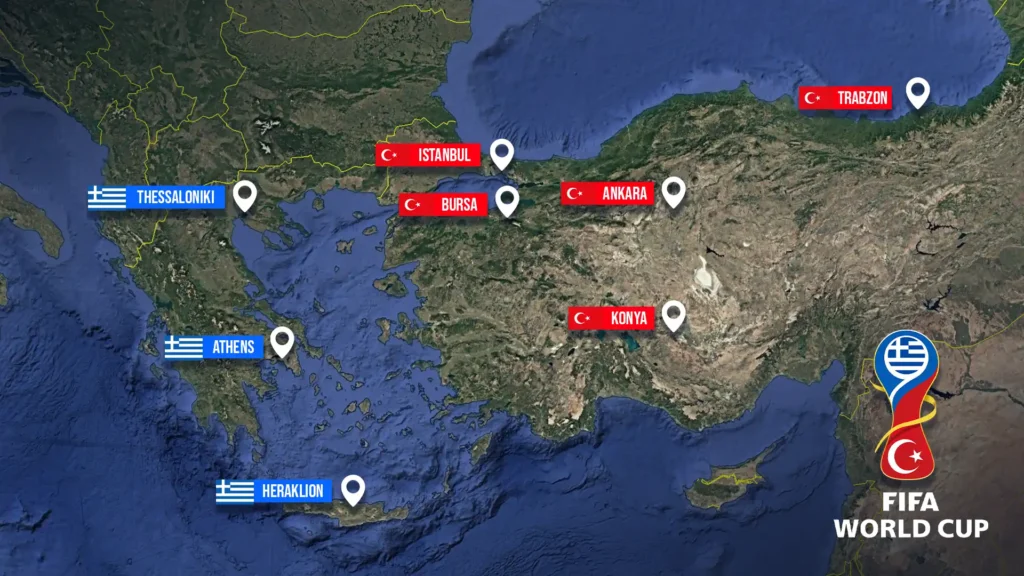
Host Stadiums in Greece
🇬🇷 1. Athens Olympic Stadium (OAKA) – Opening Match
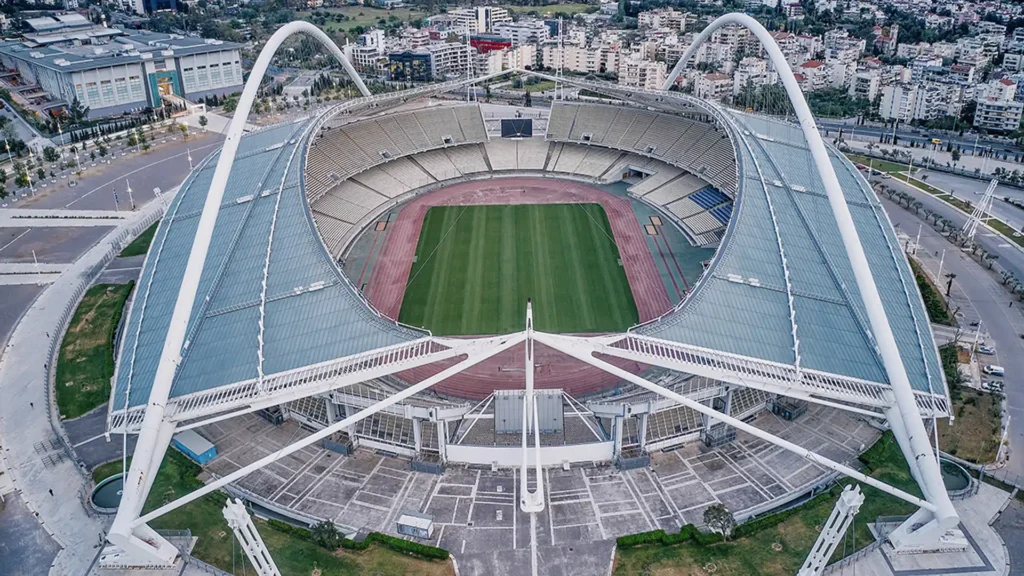
- Capacity: 72,000 (after renovation)
- City: Athens
- Fun Fact: Venue of the 2004 Olympic Games and the 2007 UEFA Champions League Final.
- Highlights: The stadium will feature a retractable roof, solar panels, and advanced crowd-flow systems.
- Role: Host of the Opening Ceremony and opening match.
🇬🇷 2. New Panathinaikos Stadium – Athens
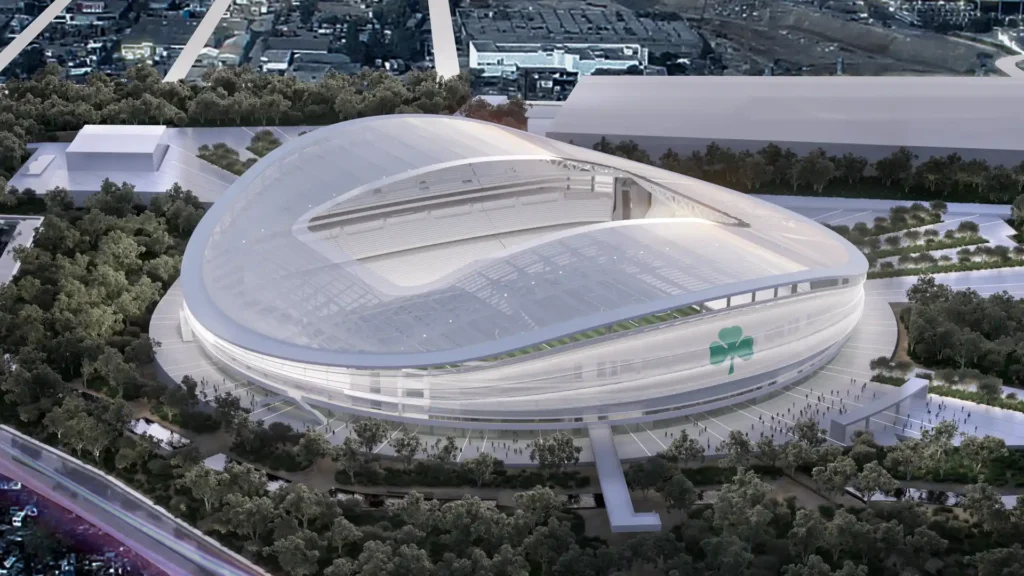
- Capacity: 40,000
- Location: Votanikos District, Athens
- Design: Eco-friendly bowl design with natural ventilation and rooftop greenery.
- Purpose: Group-stage and Round of 16 matches.
🇬🇷 3. Crete Stadium – Heraklion
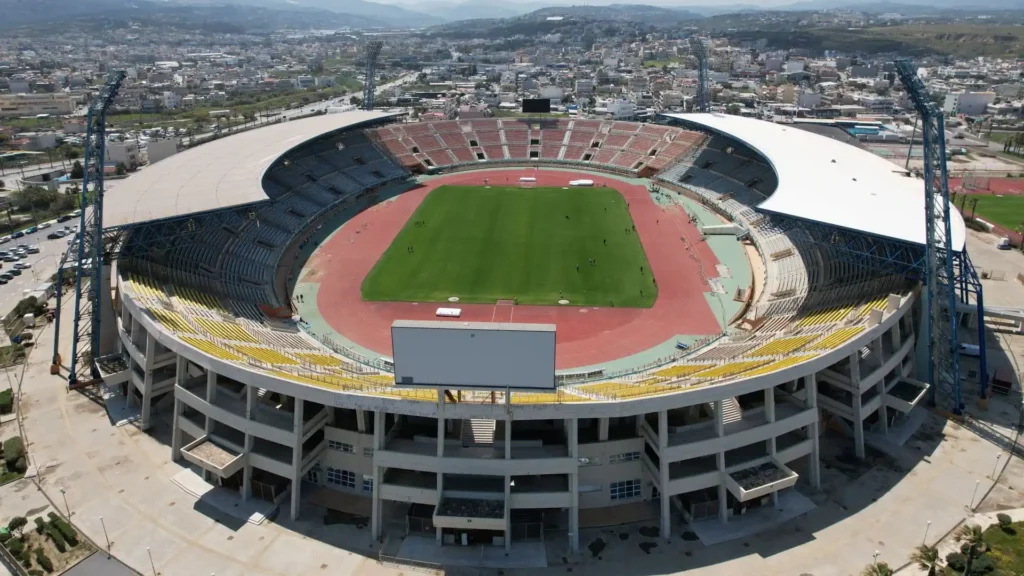
- Capacity: 40,000
- Type: New-build project
- Feature: Coastal location near the Mediterranean, using renewable energy sources and shaded seating for summer comfort.
- Ideal for: Matches combined with vacation travel — perfect for fans who love football and the beach.
🇬🇷 4. New Paok Stadium – Thessaloniki
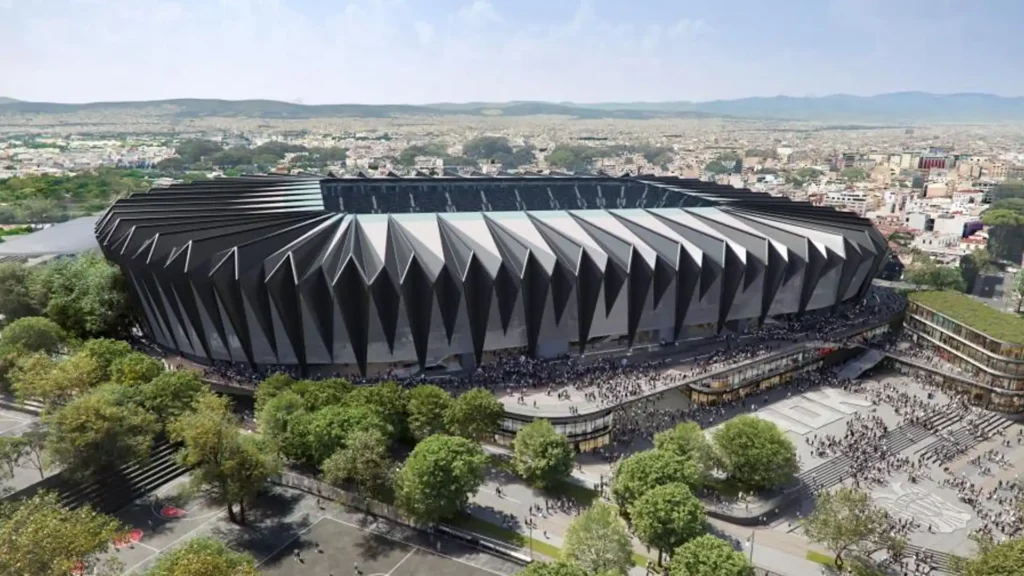
- Capacity: 40,000 (expanded for FIFA standards)
- Club: PAOK FC
- Upgrade: Increased capacity, improved hospitality zones, and modernized exterior façade with LED lighting.
- City Experience: Thessaloniki offers nightlife, cuisine, and a passionate football culture.
Host Stadiums in Turkey
🇹🇷 1. Atatürk Olympic Stadium – Istanbul (Final Match)
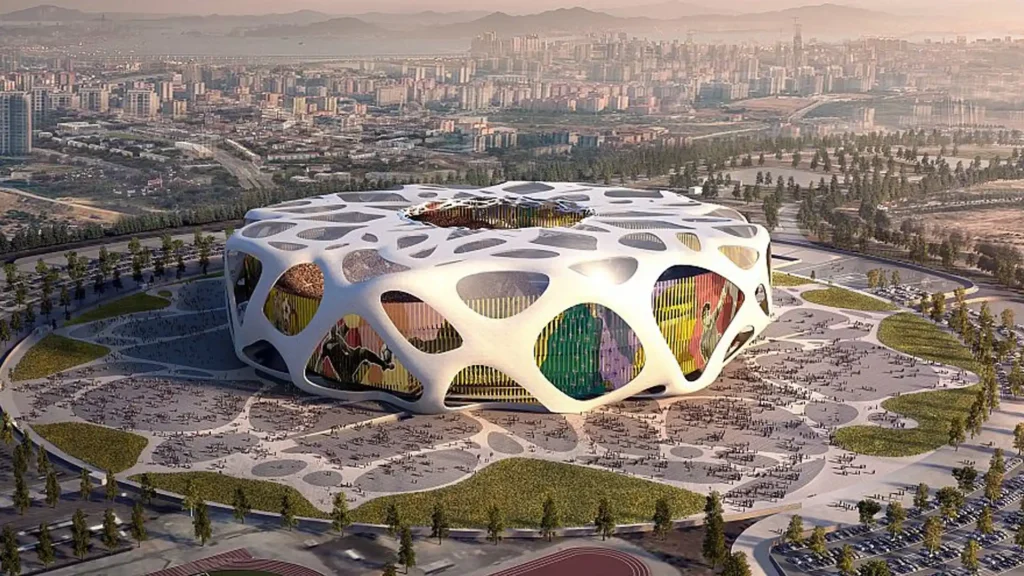
- Capacity: 92,000
- Highlight: Host of the 2023 UEFA Champions League Final.
- Role: FIFA World Cup Final Venue
- Upgrade: Enhanced VIP facilities, high-tech sound system, and full sustainability certification.
🇹🇷 2. Ali Sami Yen Sports Complex (Rams Park) – Istanbul
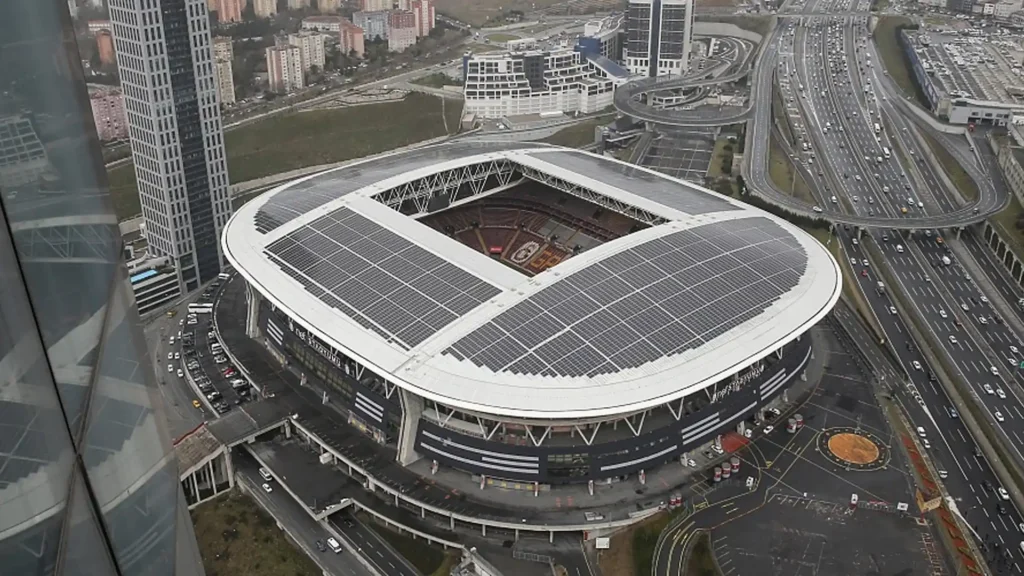
- Capacity: 52,000
- Club: Galatasaray
- Atmosphere: One of the loudest stadiums in the world.
- Function: Group and Quarter-Final matches.
🇹🇷 3. Bursa Metropolitan Stadium – Bursa
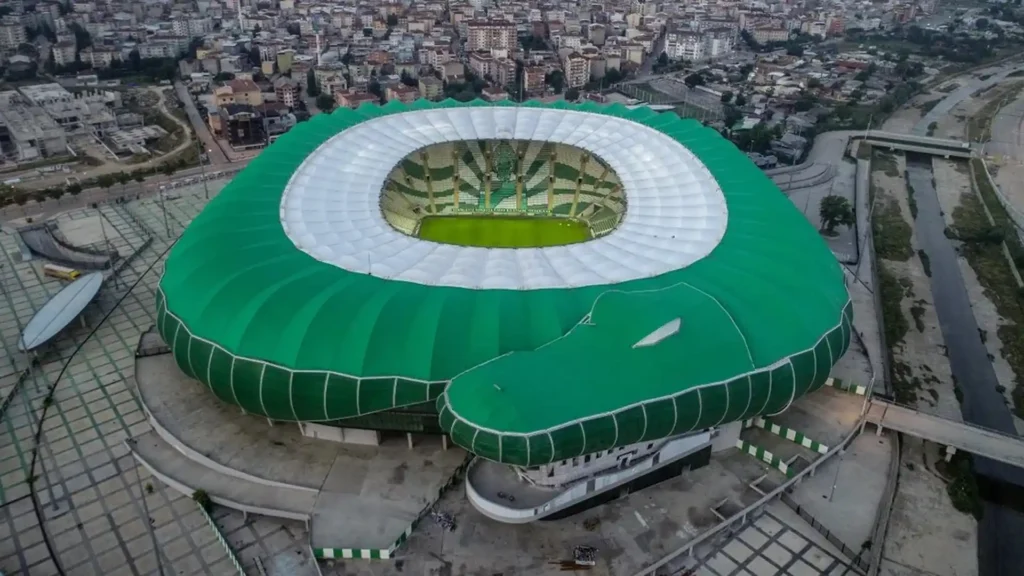
- Capacity: 45,000
- Architecture: Leaf-shaped design symbolizing the city’s green identity.
- City: Bursa, a UNESCO World Heritage city with Ottoman history.
- Function: Group-stage venue.
🇹🇷 4. New Ankara Stadium – Ankara
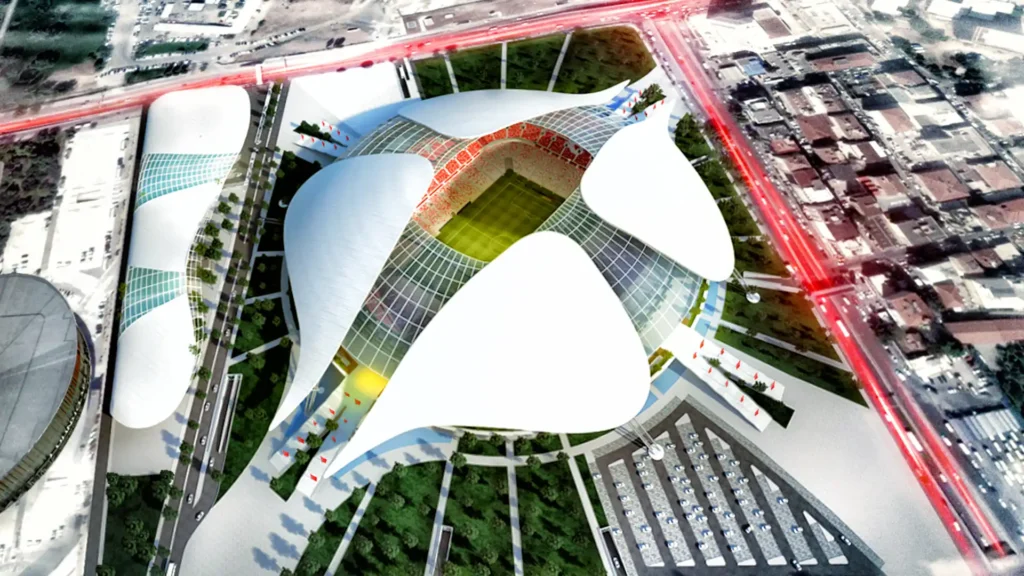
- Capacity: 50,000 (under construction)
- Highlight: Will be one of the most advanced stadiums in Turkey with retractable roofing and hybrid turf.
- Role: Quarter-final venue.
🇹🇷 5. Şenol Güneş Sports Complex – Trabzon
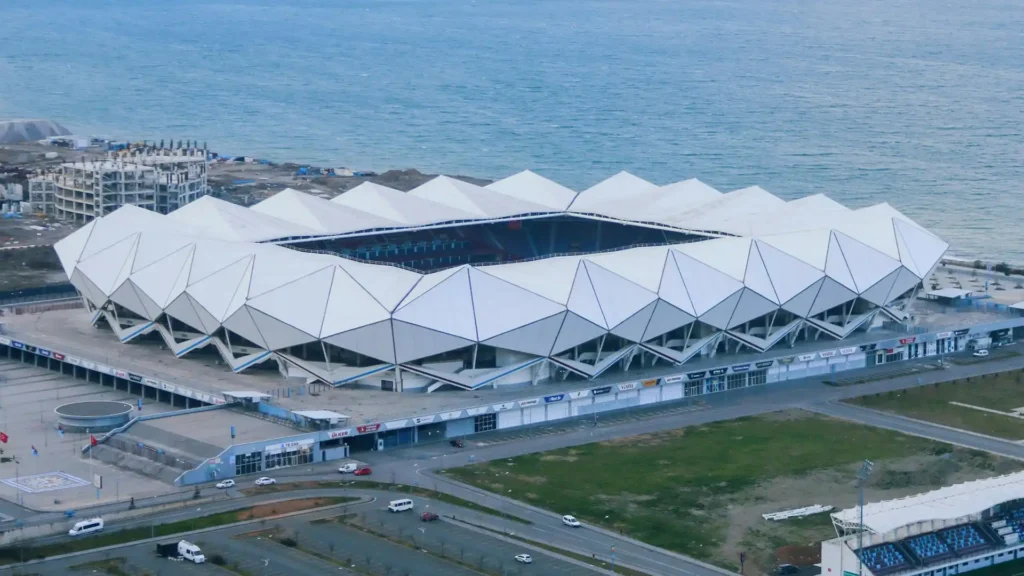
- Capacity: 41,000
- Location: Black Sea coast
- Feature: Stunning sea view and intense local atmosphere.
- Role: Group-stage matches.
🇹🇷 6. Konyaspor Stadium – Konya
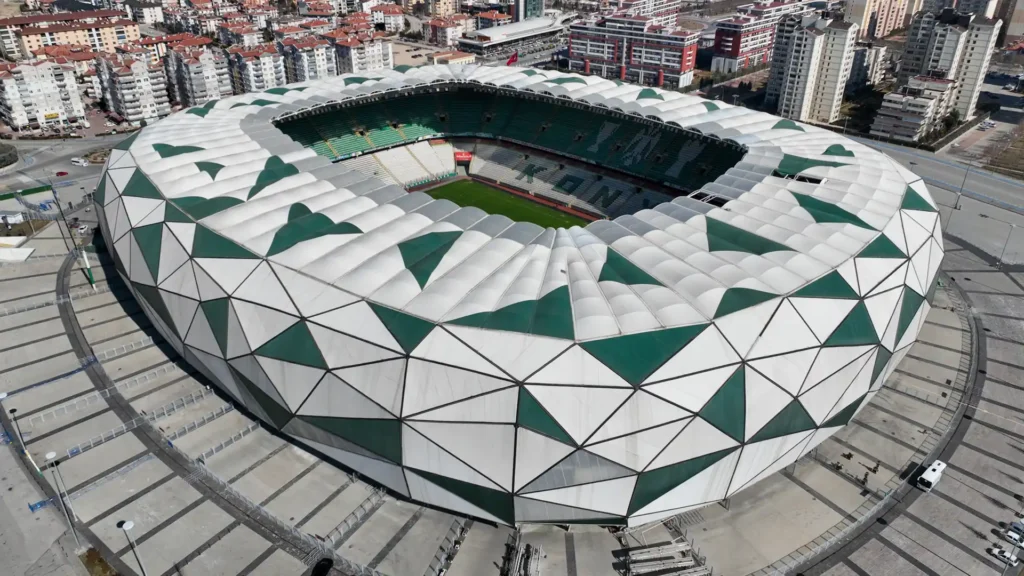
- Capacity: 42,000
- Design: Geometric façade inspired by Islamic art.
- Technology: Fully energy-efficient with natural lighting and a rainwater recycling system.
Host Cities and Travel Highlights
🇬🇷 Athens
The cradle of Western civilization becomes the cradle of global football. Fans can visit the Acropolis, stroll through Plaka, and experience the opening match under the Greek sky.
🇬🇷 Thessaloniki
A city of culture and cuisine. The White Tower, Aristotelous Square, and the city’s vibrant nightlife make it a fan favorite.
🇬🇷 Heraklion (Crete)
Combining football and tourism, Heraklion offers world-class beaches, ancient ruins, and authentic Cretan food.
🇹🇷 Istanbul
Where Europe meets Asia. The city’s three stadiums, iconic landmarks like Hagia Sophia, and bustling bazaars promise a once-in-a-lifetime fan experience.
🇹🇷 Ankara
Modern, central, and full of culture — ideal for families and football travelers exploring Turkey.
🇹🇷 Bursa, Konya, Trabzon
Three cities that reflect Turkey’s diverse character: green Bursa, spiritual Konya, and coastal Trabzon.



